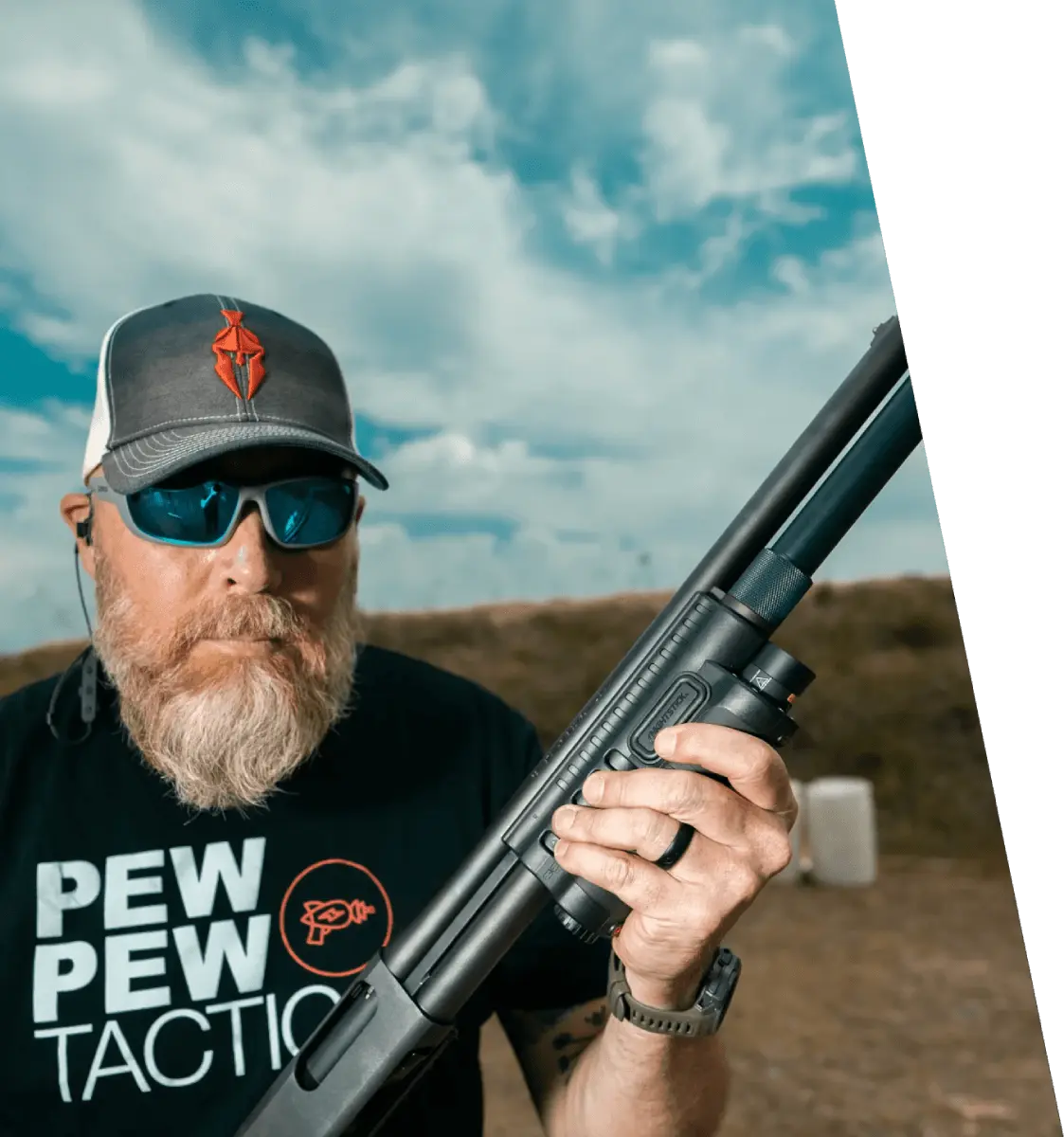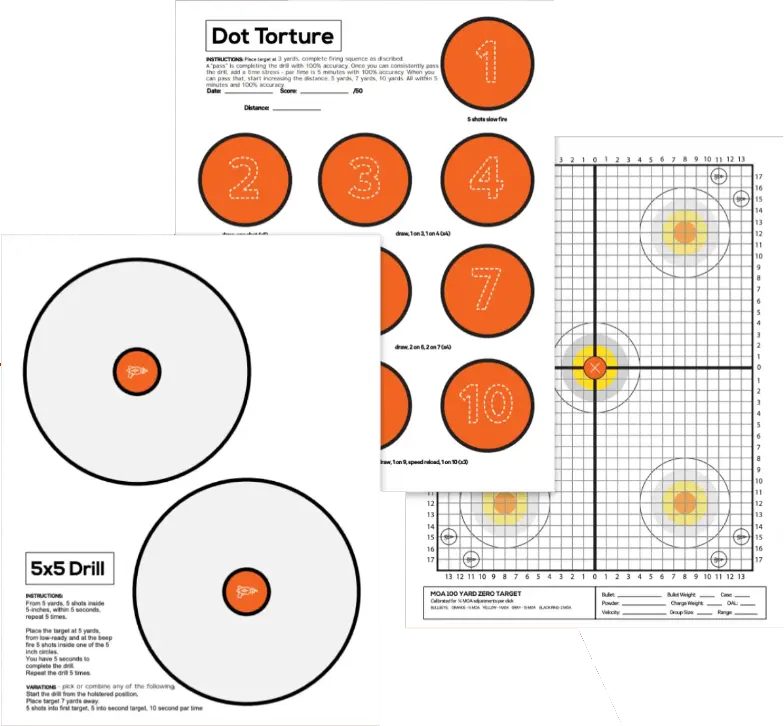Last Updated: June 2025
Disclaimer: While the information provided here is legal in nature, it is not to be construed as legal advice and is for educational and entertainment purposes only.
With so many gun laws varying from state to state, it can be tricky to keep track of and navigate the gun laws of your own state. Being home to the Windy City, Illinois has a fair number of firearms laws you’ll need to follow if you want to be able to buy a gun.
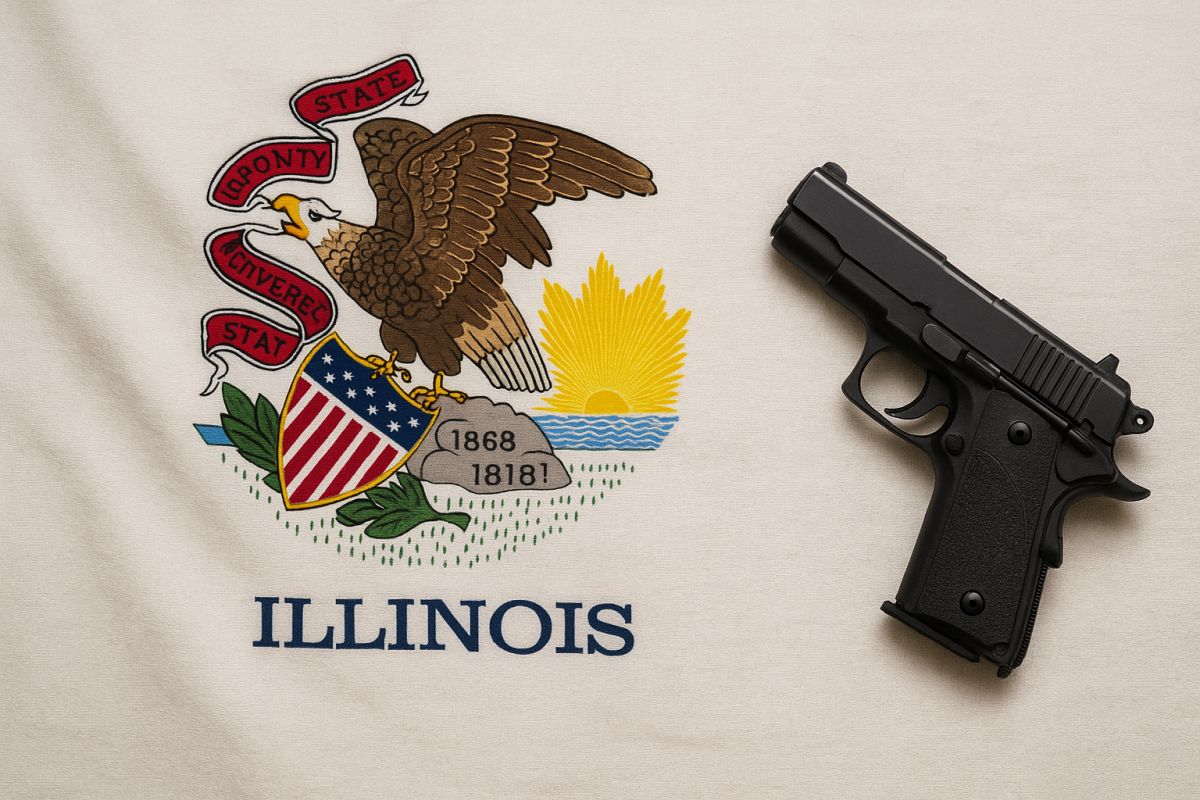
Fortunately, we’ve got all the info you’ll need to be a law-abiding gun owner in the Prairie State!
Illinois’ gun laws have become increasingly burdensome in recent years, and Honest Abe wouldn’t recognize his home state today. The Land of Lincoln isn’t quite the most unfriendly state toward gun owners, but the folks in Springfield seem to be trying their darndest to change that.
Table of Contents
Loading...
Snapshot Summary
- Permit to Own/Purchase a Firearm: Yes
- Permit to Own/Purchase Ammunition: Yes
- Firearm Registration Requirements: No*
- Firearm Restrictions/Bans: Yes
- Magazine Restrictions/Bans: Yes
- Other Restrictions/Bans: Yes
- Safe Storage Laws: No*
- Concealed Carry: Yes, Shall Issue
- Open Carry: No
- Castle Doctrine: Yes
- Stand Your Ground Laws: No
- Duty to Retreat: No
Firearm Owners Identification (FOID) Card
Most notably, Illinois requires a permit to both own and purchase a firearm. Thankfully, the Firearm Owners Identification (FOID) card covers both bases.
Getting your FOID card
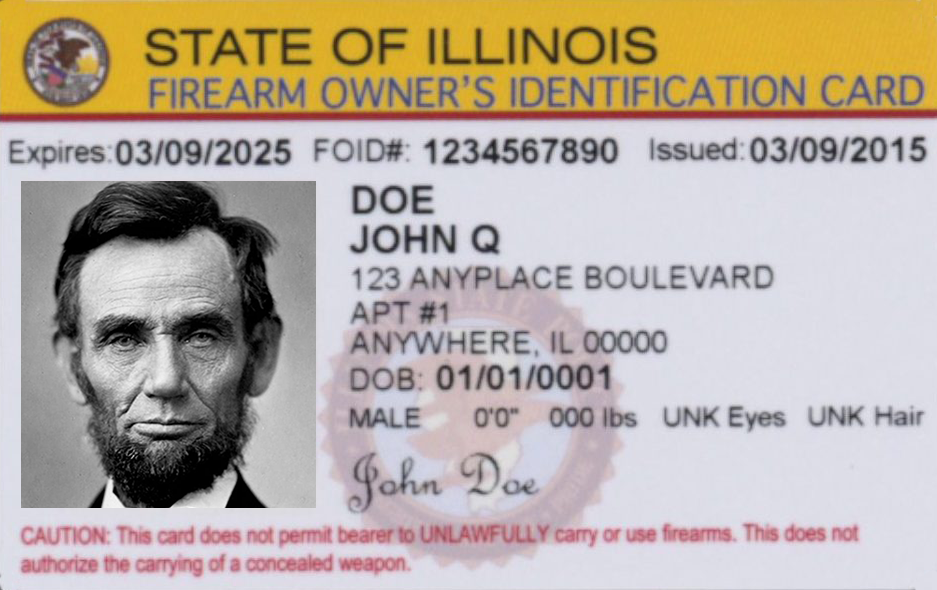
To even be allowed to buy a gun or ammunition, you’ll need to get a FOID card. This is required for both handguns and long guns, and even tasers and stun guns! To qualify for a FOID, you must:
- Be 21 or older;
- Be a resident of Illinois;
- Possess a valid driver’s license or state ID card;
- Provide a recent head and shoulder electronic photograph (within 30 days); and
- Possess $10 (payable by credit card or electronic check).
If you don’t meet the age requirement, you can still qualify for a FOID if you have a parent or guardian sponsor your application, as long as the sponsor is also qualified for a FOID.
Aside from those basic requirements, though, you’ll also need to make sure you don’t fall into any of the prohibited categories that would automatically disqualify you from getting a FOID.
Your FOID application will be denied if you:
- Have renounced your US citizenship;
- Are in the US as an illegal alien;
- Have been convicted of a felony;
- Are addicted to narcotics;
- Have been a patient in a mental health facility in the last 5 years;
- Are intellectually disabled;
- Are developmentally disabled;
- Are the subject of a protection order;
- Have been convicted in the last 5 years of battery, assault, aggravated assault, violation of an order of protection, or a similar offense in which a firearm was used or in your possession;
- Have been convicted of domestic battery, aggravated domestic battery, or a similar offense;
- Are a minor found to be delinquent for an offense that would be considered a felony if committed by an adult;
- Have been adjudicated as a mentally disabled person;
- Have been involuntarily admitted into a mental health facility;
- Are in a mental condition where you pose a clear and present danger to yourself, others, or the community;
- Were dishonorably discharged from the US Armed Services;
- Were convicted of a misdemeanor crime of domestic violence; or
- Are a fugitive from justice.
If you meet all the requirements, you can send in your application, and within 30 days, you’ll have a response — either in the form of an FOID, or a denial letter.
If you were denied, then make sure you check the letter to see what the reason was. Typically, it’s because some information was left out, but it can also be an issue with your criminal record during the background check.
If you want to appeal the decision on a denial of your FOID application, you’ll need to send the appeal to the Director of the Illinois State Police and, hopefully, provide any missing information or fix whatever issues you had on your application.
I just moved to Illinois. How long do I have to get my FOID?
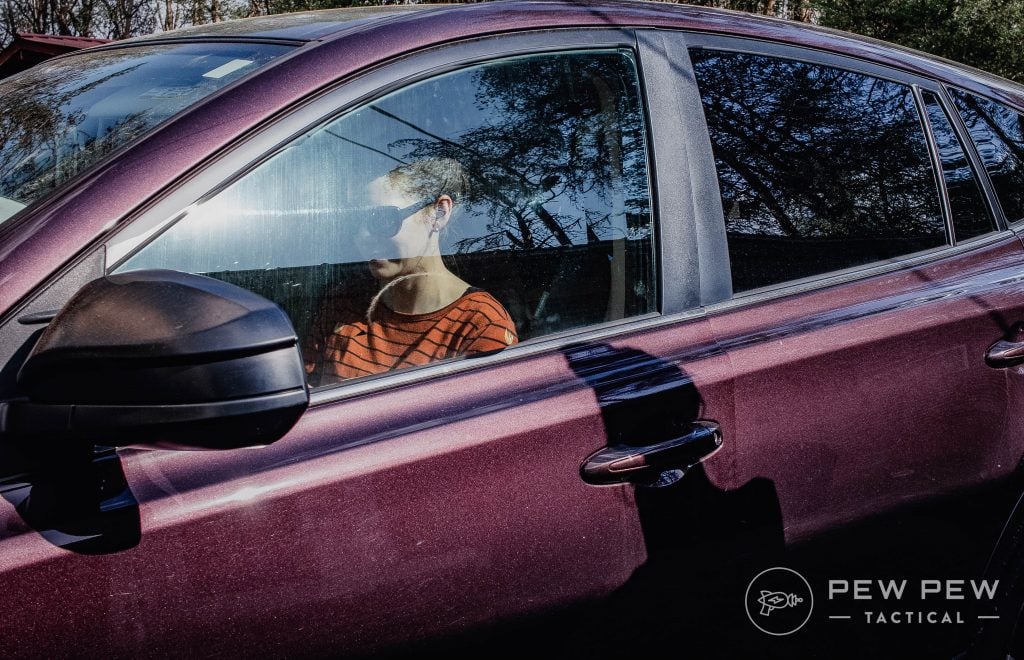
If you just moved to Illinois and already own a gun (or ten), you have 60 calendar days after obtaining your Illinois driver’s license to apply for a FOID. If you are already an Illinois FOID holder who moved to a new home or apartment, you have 21 calendar days to notify the Illinois State Police of your address change.
Just married? Had to change your name for some other reason? You have 30 calendar days to submit your application for a corrected FOID.
Renewing a FOID Card
You’ll need to renew your FOID every 10 years, but thankfully, Illinois has provided some ways to automate that process.
If you submit a full set of fingerprints with your FOID or Concealed Carry License (CCL) application as part of the Illinois State Police’s Firearms Transaction Inquiry Program (FTIP), your FOID will automatically renew. If your FOID expires during a time when your Illinois CCL is still valid, your FOID will automatically be renewed.
Military & FOID Cards
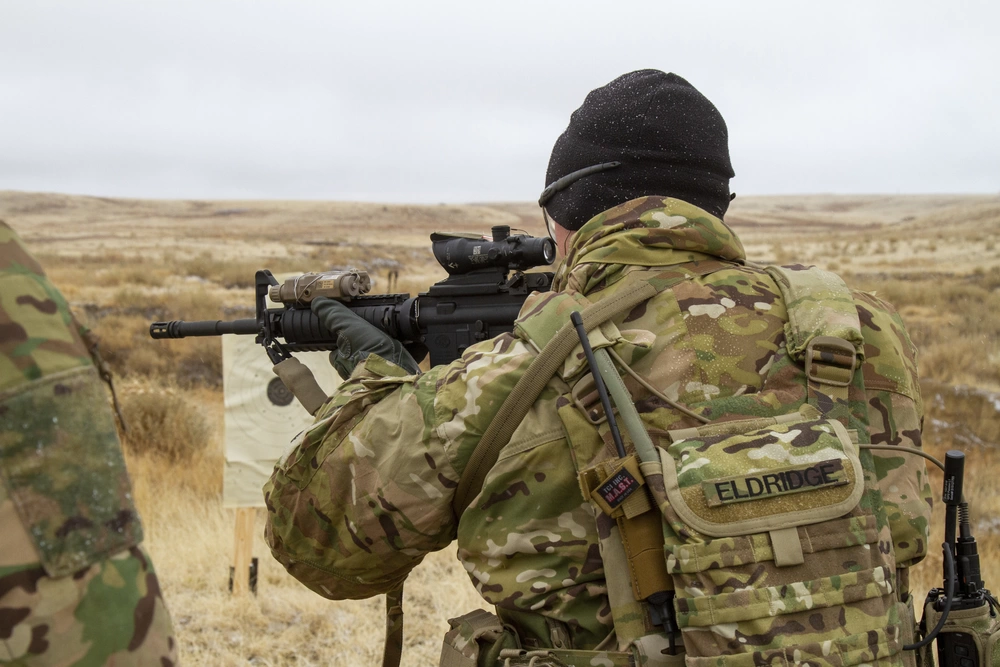
For those in the military who are stationed in Illinois, you can get a FOID without paying the initial application fee. However, you will still need to pay the same replacement as everyone else if you move, have a name change, or your card is lost, stolen, or damaged.
To apply for your FOID, you will need to provide:
- The base where you are stationed while in Illinois;
- A copy of your military assignment orders; and
- A copy of your military ID; and
- A completed Out of State Affidavit.
Children & FOID Cards
For those of you under 18, you do not need to have a FOID in order to have a firearm or ammunition, if you are under the immediate control and supervision of a parent, guardian, or other person acting in the place of a parent, who has a valid FOID.
It’s also worth noting that parents and legal guardians who give consent for anyone under 21 to receive a FOID card are liable for any damages resulting from the new FOID holder’s use of firearms and/or ammunition.
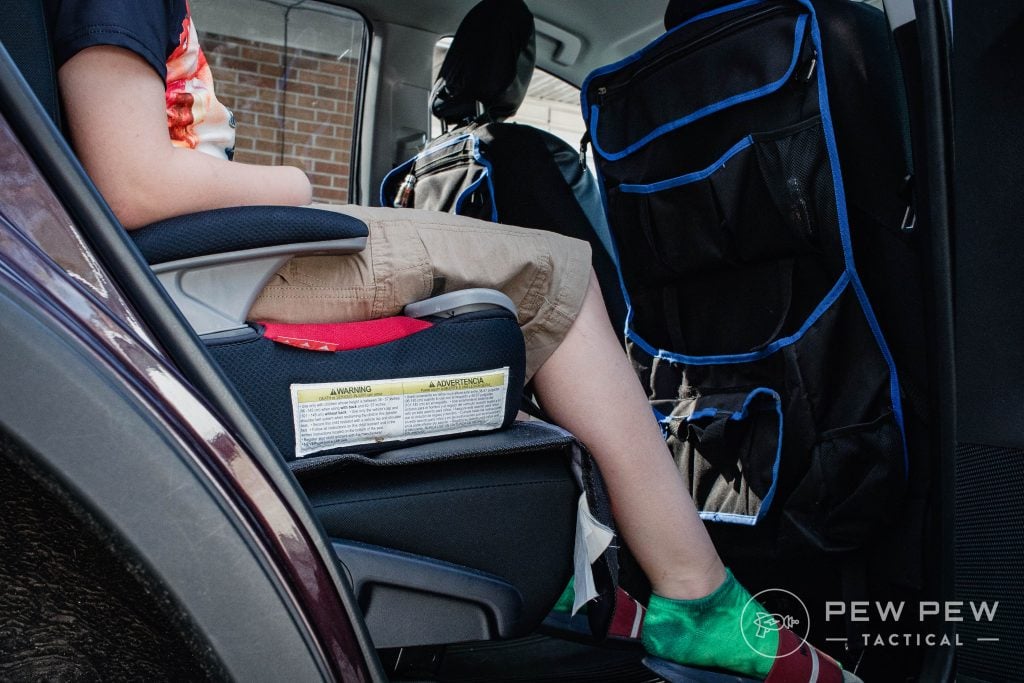
Exceptions & Loopholes
While not really a loophole, there are situations where a FOID is not required.
Of course, you’ll always need a FOID to buy a gun, but you may be able to possess and use a firearm in certain situations without a FOID. If you aren’t sure about buying a gun yet, you can always go with one of your friends to the range first. A person with a FOID card can loan a gun to a person who does not have a FOID card, as long as the gun is used at the range, and under the supervision of the FOID card owner.
In addition to borrowing a gun, a FOID is not required for:
- Nonresident hunters during hunting season, if the hunters have a valid nonresident hunting license and are in a permitted hunting area;
- Nonresidents while at a shooting range or firearms show recognized by the Illinois State Police;
- Nonresidents who have their firearms unloaded and enclosed in a case;
- Nonresidents who are licensed or registered to possess a firearm in their home state;
- Resident hunters who are authorized to hunt and, while accompanied by a FOID holder, hunt in a permitted area; or
- A person who is qualified for an FOID card and is on a shooting range or participating in a firearms safety and training course, while under the direct supervision of a FOID card holder who is 21 or older.
Safe Storage & Child Access Prevention Laws
Note: The Illinois legislature is considering legislation that would introduce specific gun storage requirements.
Gun access for minors
Securing your gun from unauthorized access by a minor is common sense, but the Prairie State has some specific criteria you will need to follow.
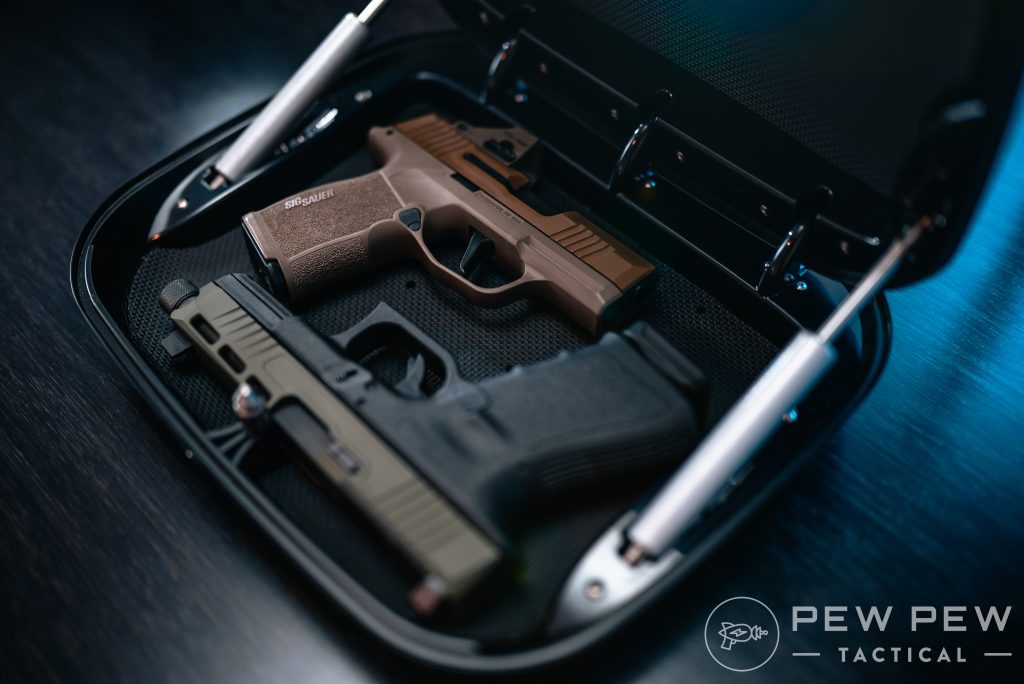
If you know or have reason to believe that a minor under the age of 14 could gain access to that firearm without permission from their parent, guardian, or other responsible adult (such as a babysitter), you will be violating Illinois gun law unless your gun is:
- Secured by a device or mechanism, other than the firearm safety, designed to render a firearm temporarily inoperable;
- Placed in a securely locked box or container; or
- Placed in some other location that a reasonable person would believe to be secure from such a minor.
You may be wondering if kids can ever legally access your firearm without permission, such as in a home invasion while you’re away. There are two exceptions to Illinois’ safe storage law.
You are legally off the hook when an underage minor gains unauthorized access:
- If he or she possesses their own FOID;
- If he or she uses it in a lawful act of self-defense or defense of another; and
- If your gun was stolen from your storage location either by the minor in question or by another individual.
As we mentioned earlier, parents and legal guardians who give their consent for a minor to receive a FOID card are liable for any damages resulting from that child’s use (or misuse) of firearms and/or ammunition.
Assault Weapons Ban
In January 2023, Governor J.B. Pritzker signed the Protect Illinois Communities Act (PICA), making Illinois the ninth state to pass an “assault weapons ban.” PICA banned citizen ownership of many popular firearms as well as certain ammunition, magazines, gun parts, and gun accessories.
Note: PICA has been challenged on constitutional grounds, but it will stay in effect while the legal process runs its course.
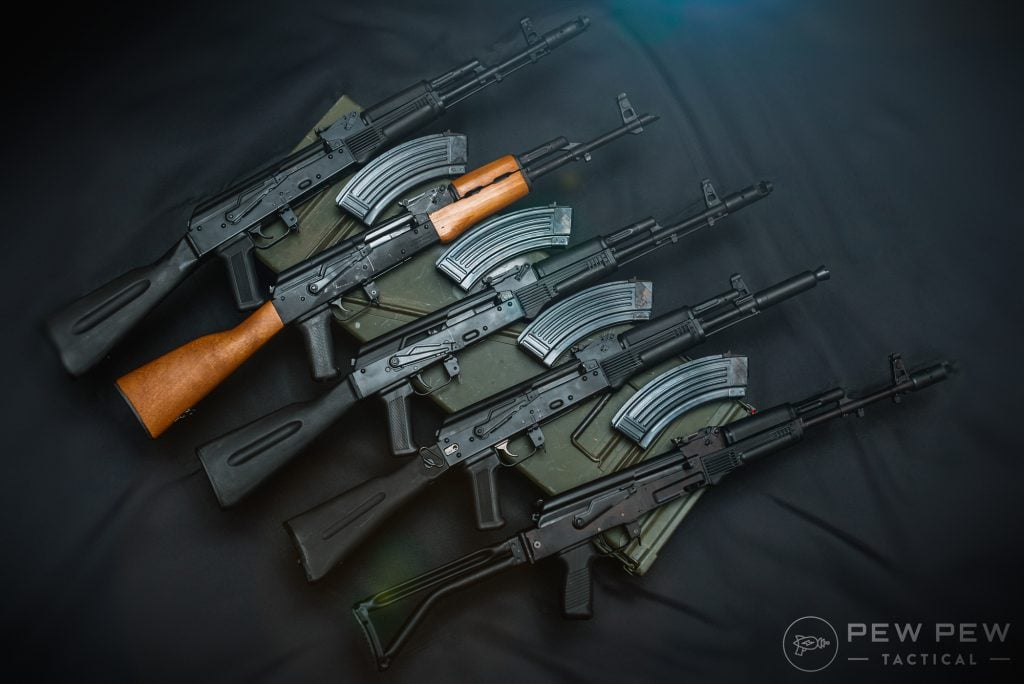
The term “assault weapon” has a rather nebulous definition, but the types of firearms that fall under such bans tend to follow the same general trends. In generalities, PICA bans all AR-15 and AR-10 rifle and pistol variants, AK-47 and AK-74 rifle and pistol variants, FN SCARs, Thompson rifles, .50 caliber Barrett rifles, and other similar “tactical” rifles.
Many of these firearms are listed by make and model, but just to make sure they covered their bases, the law’s authors provided specific definitions for the term.
In Illinois, an “assault weapon” is:
- A semiautomatic rifle that accepts a detachable magazine or that may be readily modified to accept a detachable magazine and has one or more banned parts, including:
- Pistol grips;
- “Protruding” fore grips or similar items;
- Thumbhole, folding, telescoping, and detachable stocks;
- Flash suppressors;
- Grenade launchers; and
- Barrel shrouds that partially or completely encircle the barrel and protect the shooter’s support hand from being burned (excluding handgun slides).
- A semiautomatic rifle with a fixed magazine capable of accepting more than 10 rounds (excluding detachable tubular magazine extensions that only accept .22 caliber rimfire ammunition);
- A semiautomatic pistol that accepts a detachable magazine or that may be readily modified to accept a detachable magazine and has one or more banned parts, including:
- Threaded barrels;
- Second pistol grips;
- Barrel shrouds (excluding the slide);
- Flash suppressors;
- The ability to accept a detachable magazine outside of the pistol grip;
- Buffer tubes;
- Arm braces; and/or
- Parts that protrude horizontally behind the pistol grip.
- A semiautomatic pistol that has a fixed magazine with the capacity to accept more than 15 rounds;
- Any shotgun with a revolving cylinder;
- A semiautomatic shotgun that has one or more banned parts and features, including:
- Pistol grips;
- Folding and thumbhole stocks;
- “Protruding” fore grips or similar items;
- Grenade launchers;
- Fixed magazines with a capacity of more than five rounds; and/or
- The ability to accept a detachable magazine.
- Any belt-fed semiautomatic firearm;
- Any firearm that has been modified to include banned rifle, shotgun, or handgun parts (listed above); or
- Any part or combination of parts designed or intended to convert a firearm into an assault weapon, including any combination of parts from which an assault weapon may be readily assembled if those parts are in the possession or under the control of the same person.
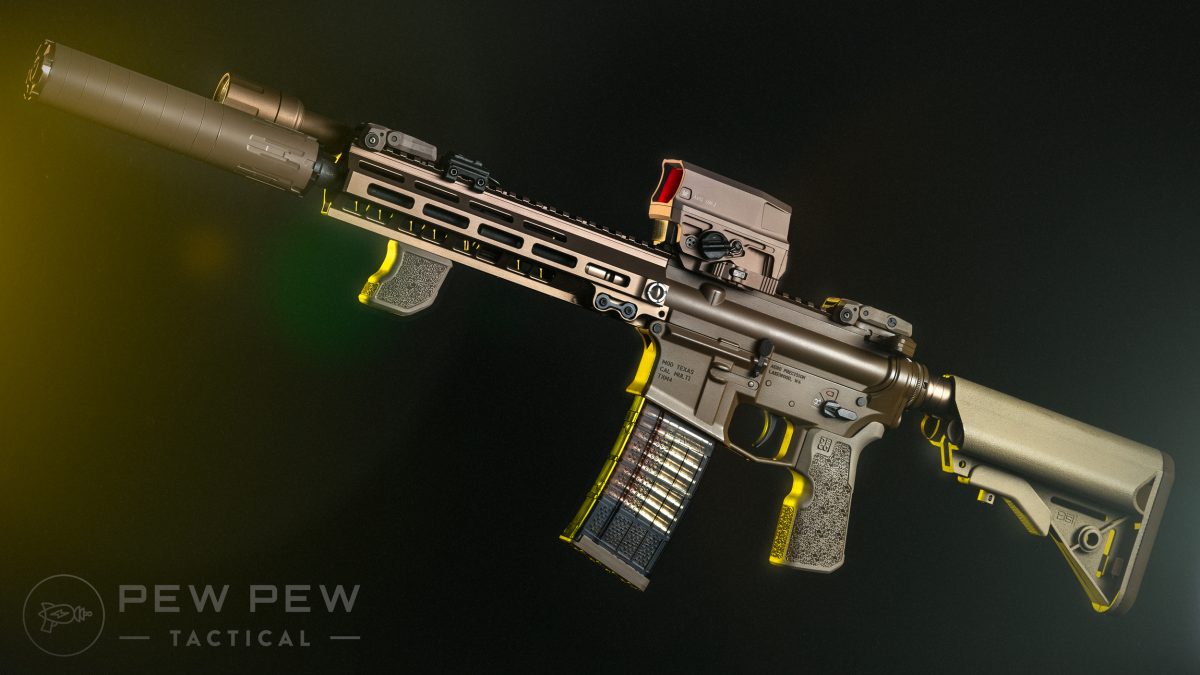
Grandfather Clause
If you owned an “assault weapon,” “assault weapon attachment,” .50 caliber rifle, or .50 caliber cartridge prior to January 11, 2023, you can still keep your now-restricted firearms so long as you submit an endorsement affidavit through your online FOID account.
Once you have submitted your endorsement affidavit, then you may keep possession of your restricted firearm, part, or ammunition:
- On private property you own or is under your immediate control;
- On private property that is not open to the public with the express permission of the person who owns or immediately controls such property;
- On the premises of a licensed firearms dealer or gunsmith for the purpose of lawful repair; or
- At a licensed firing range or sport shooting competition venue or while traveling to and from these locations.
- If you have properly completed the required endorsement affidavit and are physically present, then someone else can use your regulated firearm at a licensed firing range.
Note that the endorsement affidavit is not required for PICA-regulated magazines.
Magazine & Accessory Restrictions
In addition to denying average citizens access to some of the most popular and effective self-defense tools on the market, Illinois’ PICA also banned access to “large capacity” magazines and “ammunition feeding devices” (we’ll call them “AFDs”) as well.
You can no longer purchase 10-round magazines or AFDs for rifles and shotguns, and 15 rounds is the maximum legal limit for handgun magazines and AFDs.
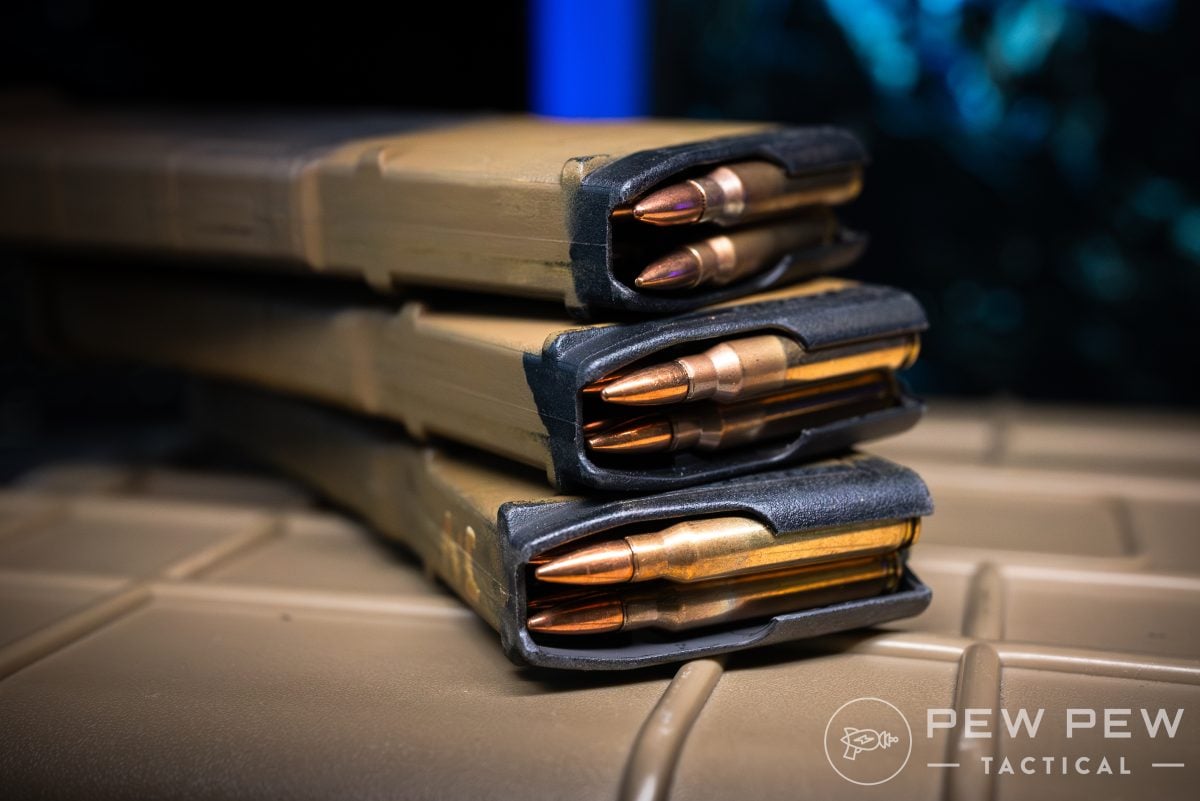
Mag Ban FAQ
Legalese is a language in its own right, so we thought it might be helpful to address a few common concerns about the Prairie State’s ban on “large capacity” magazines and AFDs.
- Lever actions with tubular magazines chambered in .22 rimfire calibers only are exempt from this ban.
- The term “large capacity ammunition feeding device” includes magazines, ammo belts, drums, “feed strips,” and other similar gun parts, including those “that can be readily restored or converted to accept” more than the legal limit of rounds.
- Owning a max-capacity magazine that can accept an extension is legal so long as you do not own an extension kit that would expand the magazine’s capacity beyond the legal limit.
- If a magazine has a capacity of more than 10 rounds of any caliber, it meets the definition of a “large capacity ammunition feeding device” and is regulated by PICA. There are no exceptions, even for “large capacity” magazines that can only hold 10 or fewer large caliber rounds (such as .450 SOCOM in a 30-round 5.56/.223 mag).
- If you owned a magazine or AFD with a capacity above the legal limit prior to January 11, 2023, you may keep possession of it:
- On private property you own or is under your immediate control;
- On private property that is not open to the public with the express permission of the person who owns or immediately controls such property;
- On the premises of a licensed firearms dealer or gunsmith for the purpose of lawful repair; or
- At a licensed firing range or sport shooting competition venue or while traveling to and from these locations, provided it is stored unloaded and enclosed in a case, firearm carrying box, shipping box, or other container.
- You can legally transfer your magazine or AFD to an heir, an individual residing in another state maintaining it in another state, or a dealer licensed as a federal firearms dealer. Except when transferring to an heir, all of these transfers must be reported to the Illinois State Police within 10 days of the transfer.
Purchasing a Gun in Illinois
Remember that FOID card we mentioned? Without that, you won’t be buying a gun in Illinois. Not legally, anyway. If you skipped straight to this section, scroll back up to learn about what it takes to obtain your very own FOID.
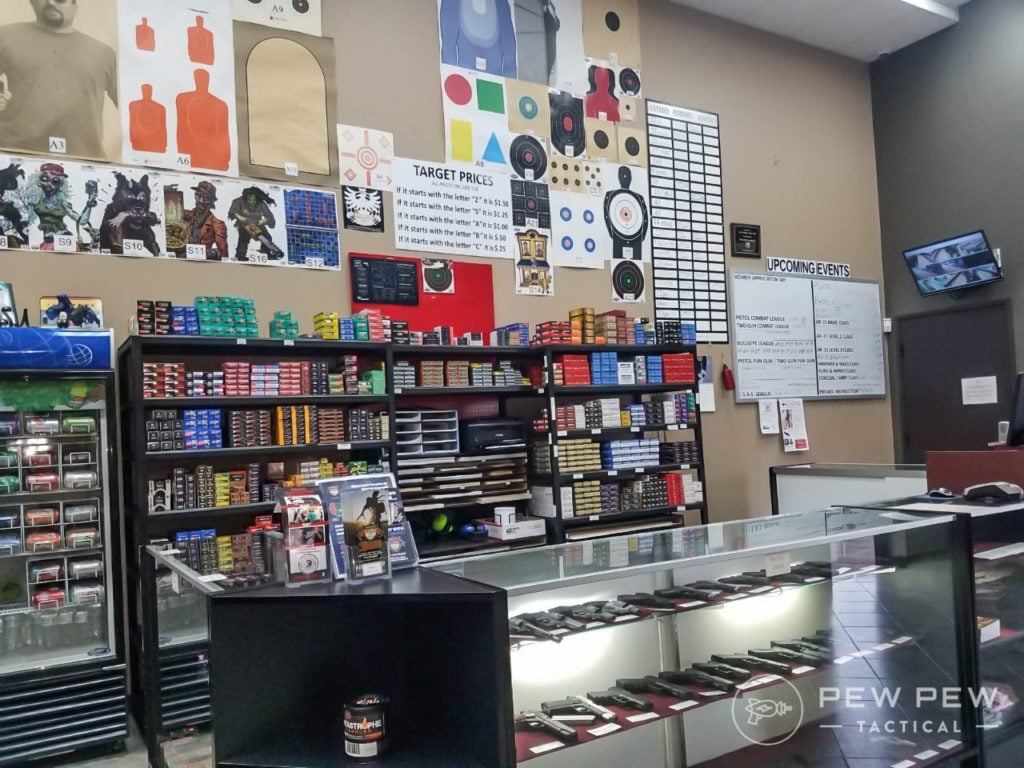
Illinois requires all firearm transfers to be recorded by the person “who transfers or causes to be transferred any firearm, stun gun, or taser.” These records must then be kept on file for 10 years.
Whether you buy a handgun or a long gun, you will have to wait a full 72 hours from the time your background check is approved before you can take your new source of joy home with you.
Buying a Handgun
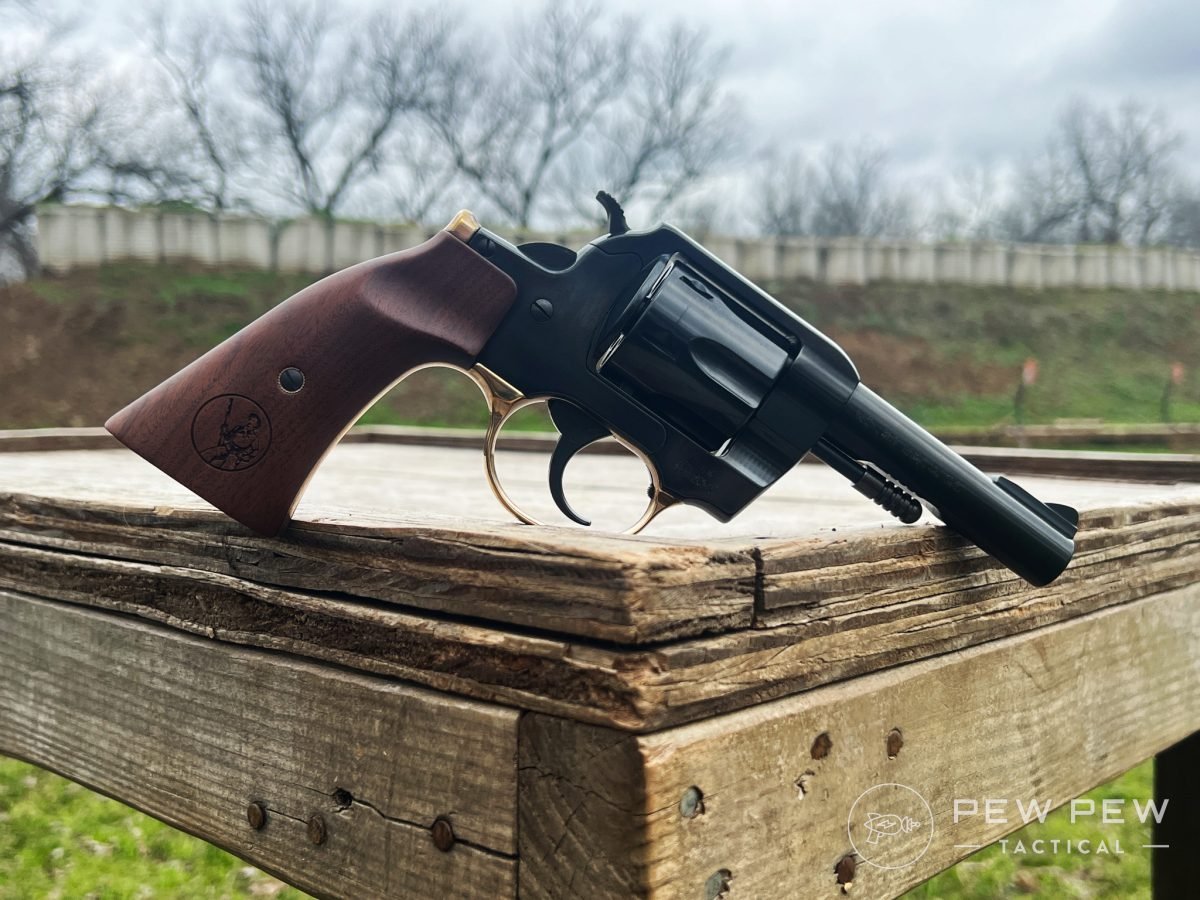
To buy a handgun, you must:
- Be 21 or older;
- Present a FOID card;
- Present ID with your current address; and
- Have a background check performed by a licensed firearms dealer.
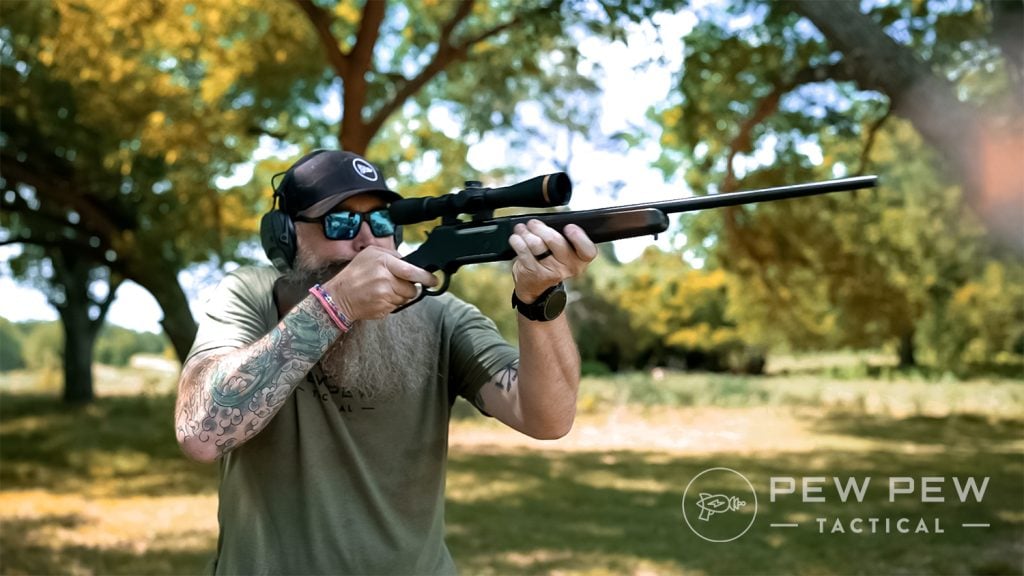
Buying a Long Gun
To buy a long gun, you must:
- Be 18 or older;
- Present a FOID card;
- Present ID with your current address; and
- Have a background check performed by a licensed firearms dealer.
Private Sales
A private seller is required to check your FOID card to make sure it’s valid, and you’ll have to go through a background check at your local gun store.
You also won’t dodge the age restrictions or the 72-hour waiting period.
Antiques and Heirlooms
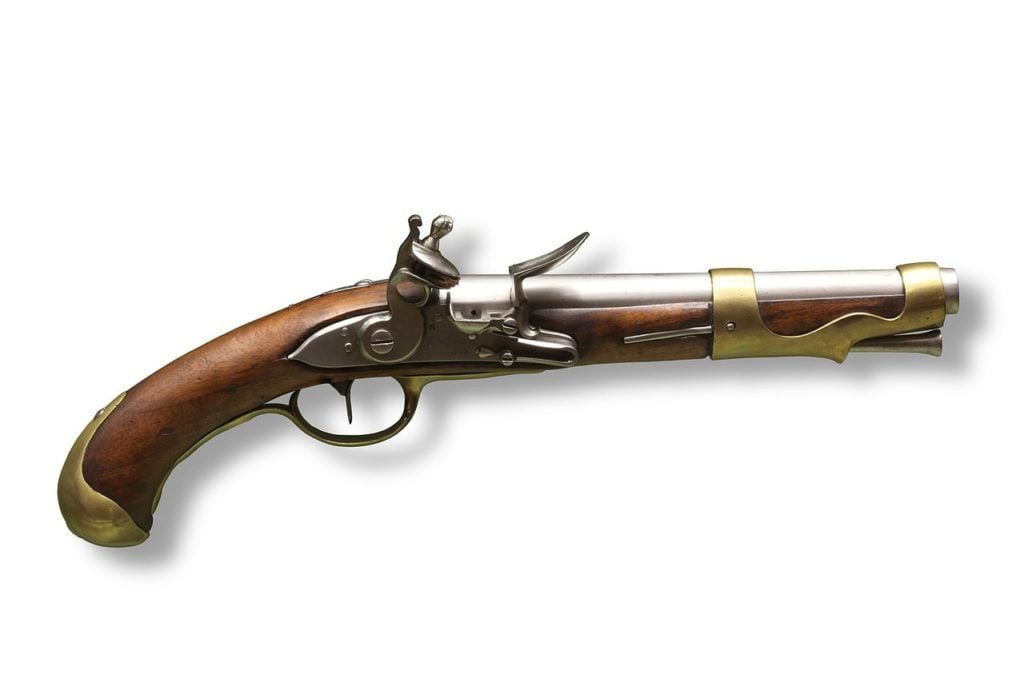
If all you want to buy are antique firearms, there are fewer hoops to jump through — but you’ll need to make sure the gun qualifies as an antique. An antique firearm is:
- Any firearm with a matchlock, flintlock, percussion cap, or similar ignition system manufactured before 1899; or
- Any replica of any firearm (matchlock, flintlock, percussion cap, or similar) that is not intended or redesigned for using rimfire or conventional centerfire ammunition; or
- Any replica of any firearm (matchlock, flintlock, percussion cap, or similar) that uses rimfire or centerfire ammunition that is no longer made in the US and is not readily available in normal markets; or
- A muzzle-loading rifle, shotgun, or pistol that uses black powder or a black powder substitute and cannot use regular ammunition.
You’ll still want to check with the Illinois State Police to make sure the gun is not viewed as a weapon but instead just a collector’s item.
Purchasing Ammo
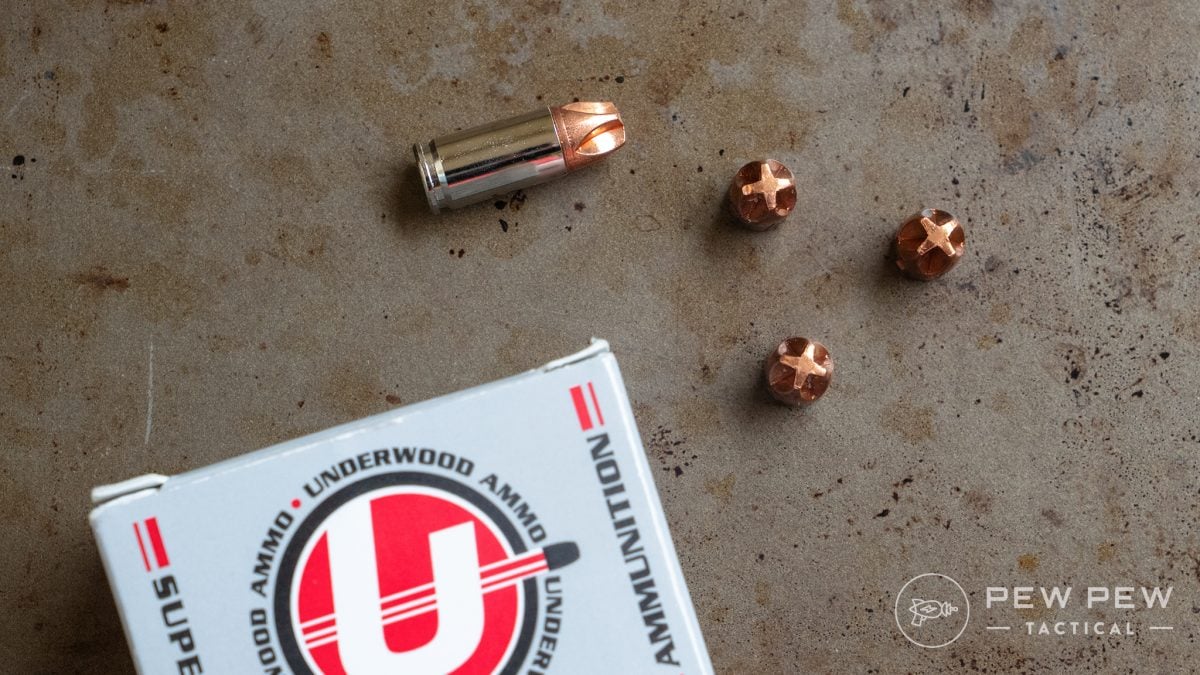
Because a FOID card is needed for buying and owning ammunition in addition to firearms, it should not be a surprise there are some restrictions on the type of ammo you can buy in the state. You cannot buy:
- Armor piercing ammo;
- Dragon’s breath shotgun shells;
- Bolo shells (ammo that shoots out projectiles of balls connected by metal wires);
- Flechette shells (ammo that shoots out fin-stabilized wire, or solid dart-type projectiles);
- Explosive bullets; and
- .50 caliber rifle rounds.
Beyond those types of ammo, you also cannot buy or own any tear gas, tear gas guns, bombs, or any other type of non-lethal liquid gas or similar substance, except for one used for self-defense.
Pepper spray or mace is ok for self-defense, but anything else is essentially off-limits.
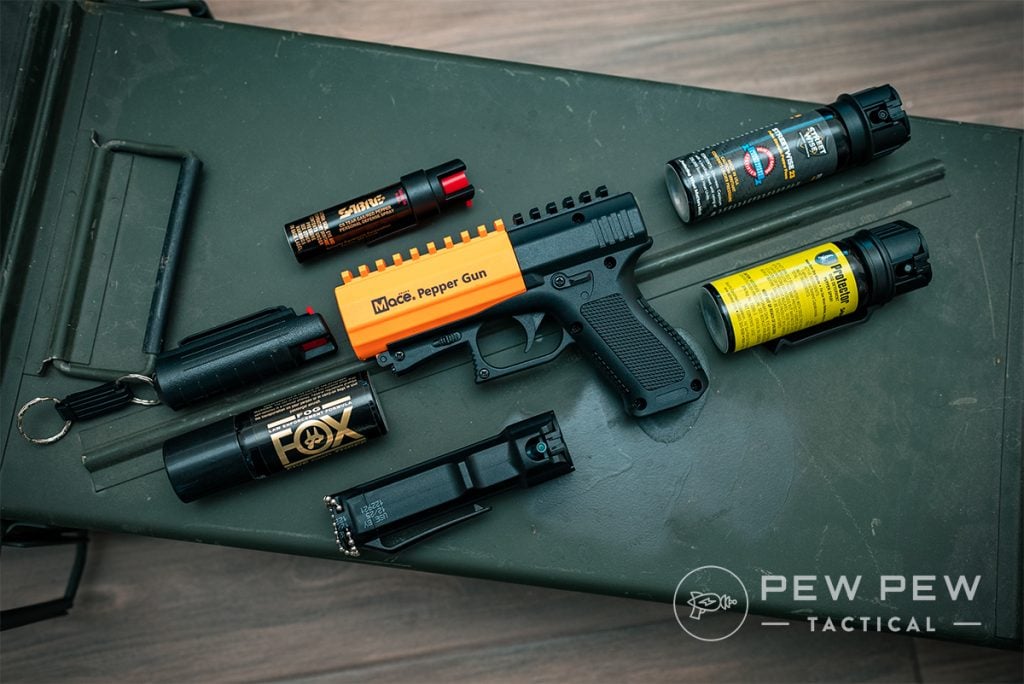
Concealed Carry & Open Carry
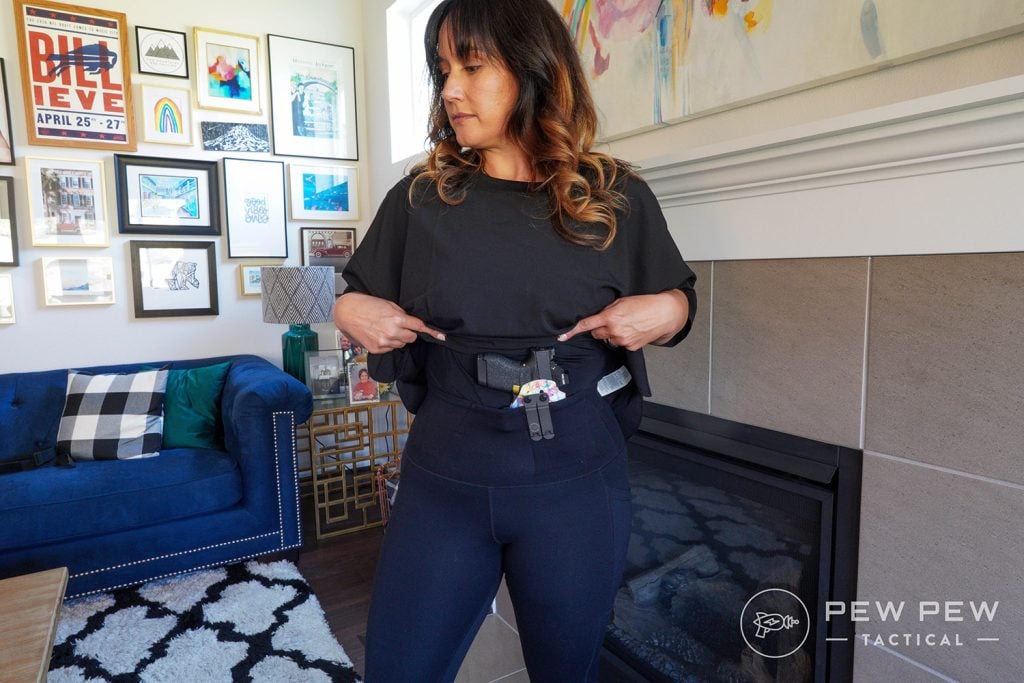
Though most public locations require a permit to carry, there are instances where you can carry without a permit. These include:
- Your own home or property;
- A shooting range;
- When you are out hunting, trapping, or fishing, with a valid license; and
- Your vehicle (under certain conditions).
Open Carry: Openly carrying firearms is not allowed in Illinois except on your own property or property where the owner has granted you permission to open carry, like the local shooting range.
Concealed Carry: Carrying a concealed handgun in Illinois is allowed if you have a state-issued Concealed Carry License (CCL). Illinois’s CCL now also doubles as a FOID, which makes life less complicated at the gun store. The state also provides CCL holders with a Combo (FOID/CCL) eCard.
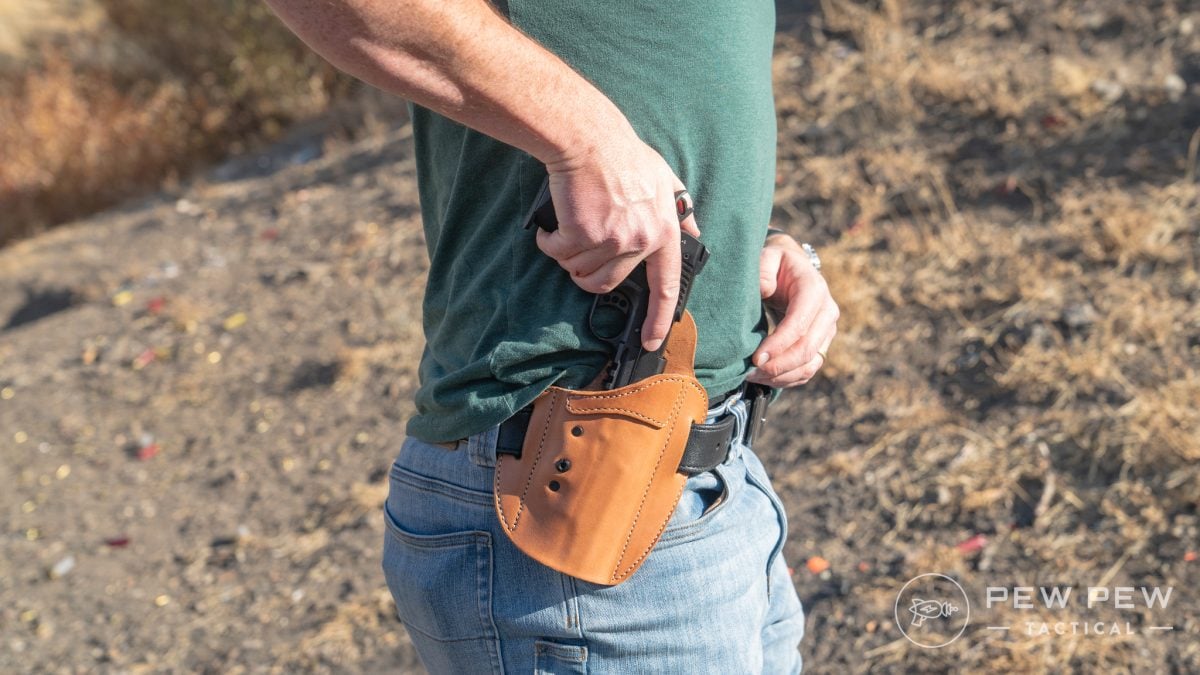
Getting Your CCL
How do you get an Illinois CCL? There are a few basic requirements you’ll have to meet in order to get a CCL. To qualify for a CCL, you must:
- Be 21 or older;
- Have a valid FOID card;
- Successfully complete a required firearms training course; and
- Have $150.
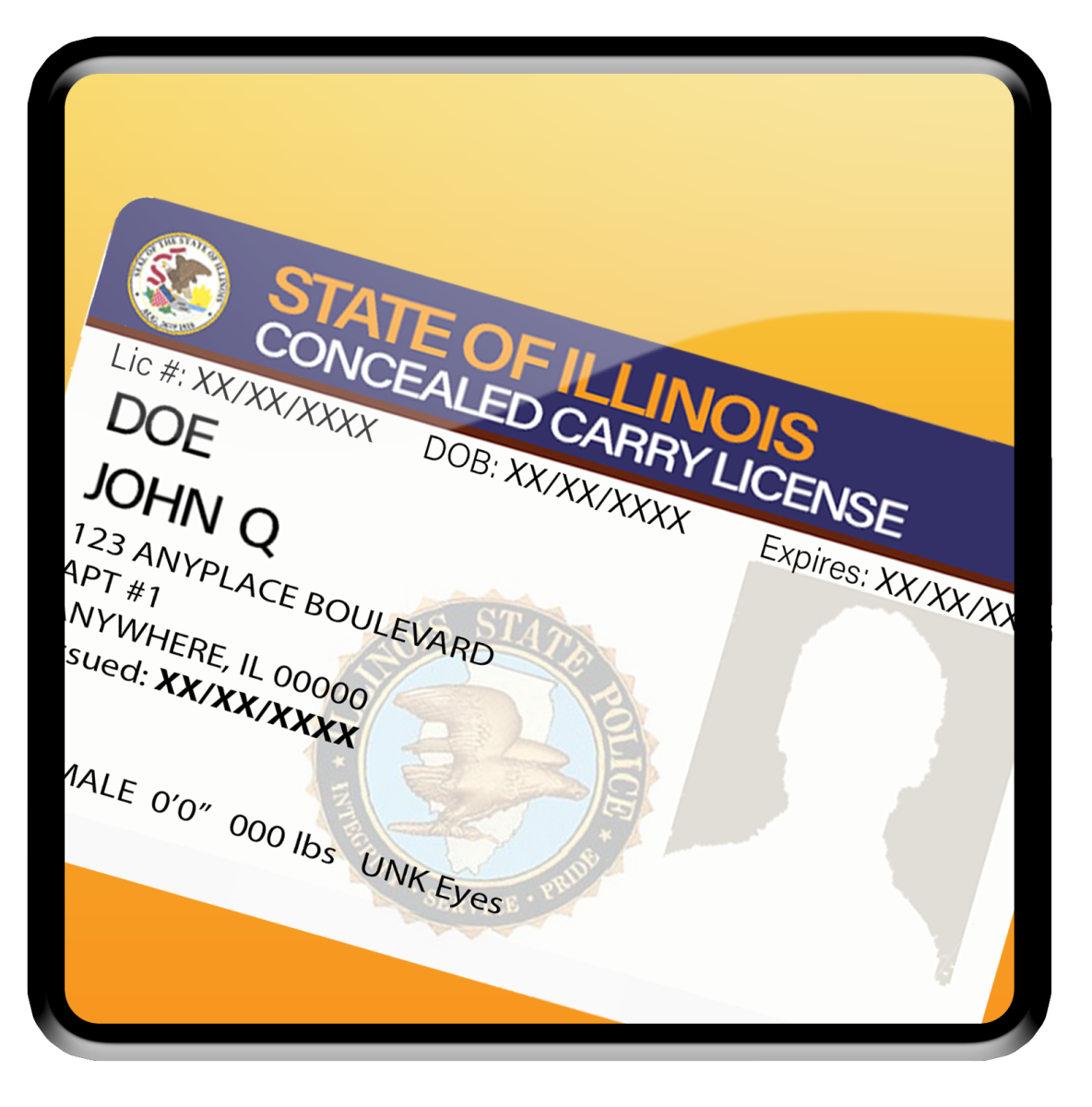
Beyond those basic requirements, though, you’ll also need to make sure you don’t fall into any of the prohibited categories that would automatically result in your application being denied. You will be automatically denied a CCL if you:
- Are prohibited under federal law from possessing or receiving a firearm (well, yeah);
- Have been convicted or found guilty of a misdemeanor involving the use of threat of physical force or violence to a person, in the last 5 years;
- Have been convicted or found guilty of two or more violations related to driving while under the influence, in the last 5 years; or
- Have been in residential or court-ordered treatment for alcoholism, alcohol detoxification, or drug treatment within the last 5 years.
Training Requirements
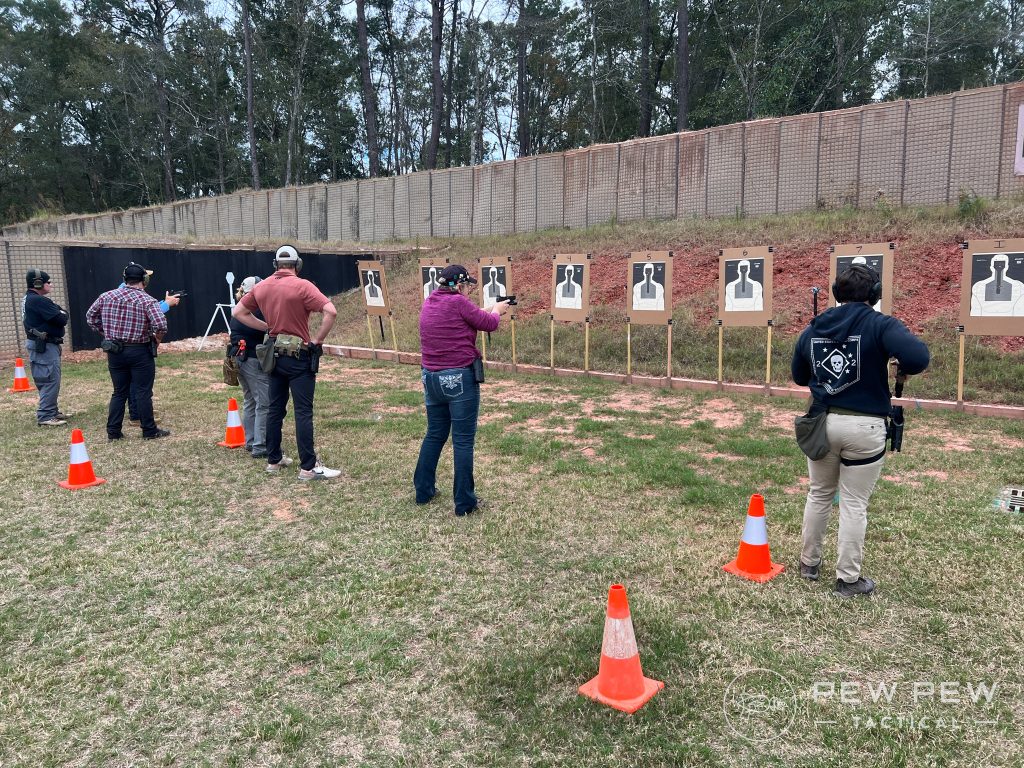
The training requirement means you can only take training from an approved instructor listed on the Illinois State Police CCL website. The course itself is pretty basic, and will cover the topics of:
- Firearms safety;
- Basic principles of marksmanship;
- Care, cleaning, loading, and unloading of a concealable firearm;
- All state and federal laws relating to the ownership, storage, carry, and transportation of a firearm;
- Appropriate and lawful interaction with law enforcement while transporting or carrying a concealed firearm; and
- Weapons handling.
In addition to the instruction portion of the training, you’ll also need to pass a live fire exercise by hitting 70% of the targets. The course requires you to shoot 10 rounds from 5, 7, and 10 yards each (30 rounds total), at a B-27 silhouette target.
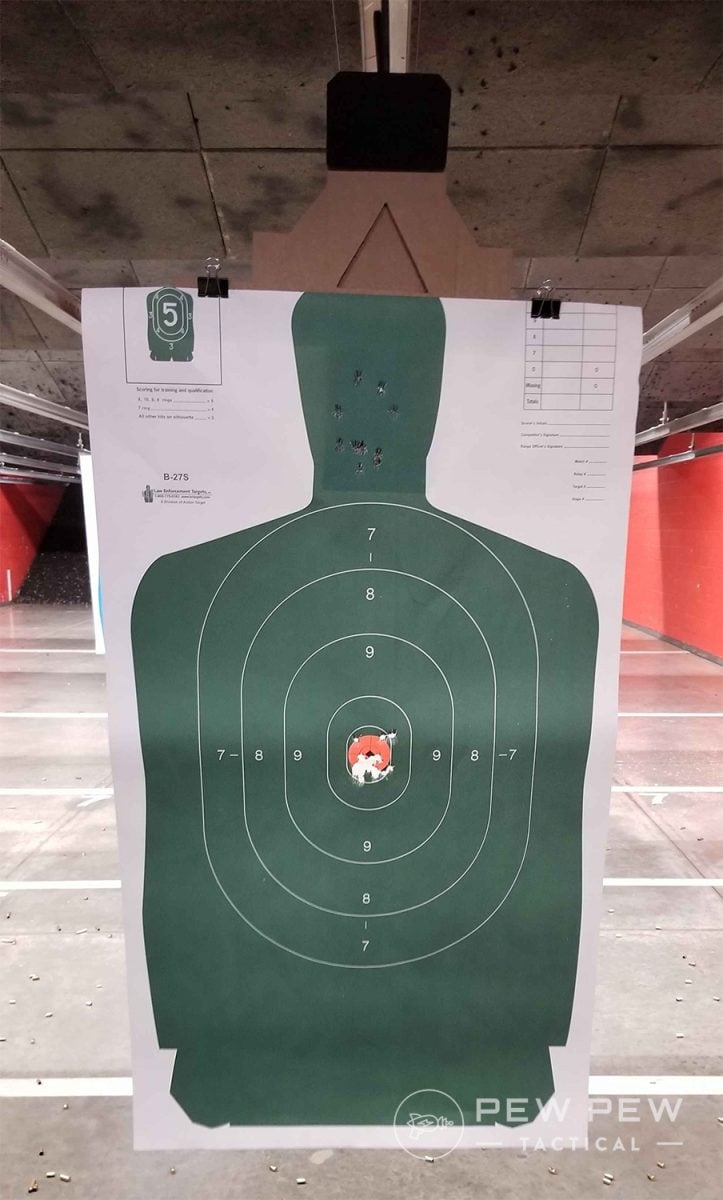
All told, you can expect to spend at least 16 hours of combined “classroom” and range qualification time. If you are in the military, are a retired or honorably discharged veteran, or are a retired Illinois law enforcement or corrections officer, you can budget half that time. Law enforcement and corrections officers who are currently weapons-qualified should be able to skip the training altogether.
Submitting the CCL Application
Once you’ve completed your training and have all your required documents together, you will need to apply for the CCL permit via the CCL application. You must complete the application and submit it (along with proof of training) to the Illinois State Police. It usually takes about 90 days for you to hear back, though if there are any issues with your application, it can take up to an extra 30 days for them to process it. If your application is denied, you’ll need to pay attention to who denied it.

If your application was denied by the CCL Review Board, then you have 35 days to appeal the decision. These denials are usually related to issues in your criminal history, so you’ll want to make sure you are aware of any potential issues that might disqualify you from getting a CCL.
If your application was denied by the Director of the Illinois State Police, then you have 60 days to appeal the decision. These types of denials are usually related to FOID eligibility, so you’ll need to look back at whether you have any issues that would disqualify you from having a FOID card.
In both situations, when you are appealing your denial, you basically need to state why you think the denial is wrong or provide whatever information was missing when you last submitted your application. Once you fix the problem, or if you never had a problem to fix in the first place, you should hopefully have your CCL in hand!
Renewing your CCL

Renewing your CCL is a fairly straightforward process, assuming your FOID is still valid. About six months before your CCL’s expiration date, you should receive a notification that your FOID/CCL is up for renewal.
You will need to take an Illinois State Police-approved three-hour refresher training, then contact the Illinois State Police to start the actual renewal process. (You should be able to complete your refresher course after your CCL expires, but your license will be invalid until your renewal application is processed.)
You can complete the renewal application online or at one of four self-service kiosks (Lockport, Springfield, Collinsville, and DuQuion). Make sure you’re ready to pony up $150 for your renewal.
Since Illinois no longer prints expiration dates on CCL cards, you will not receive a new card in the mail.
Concealed Carry Reciprocity
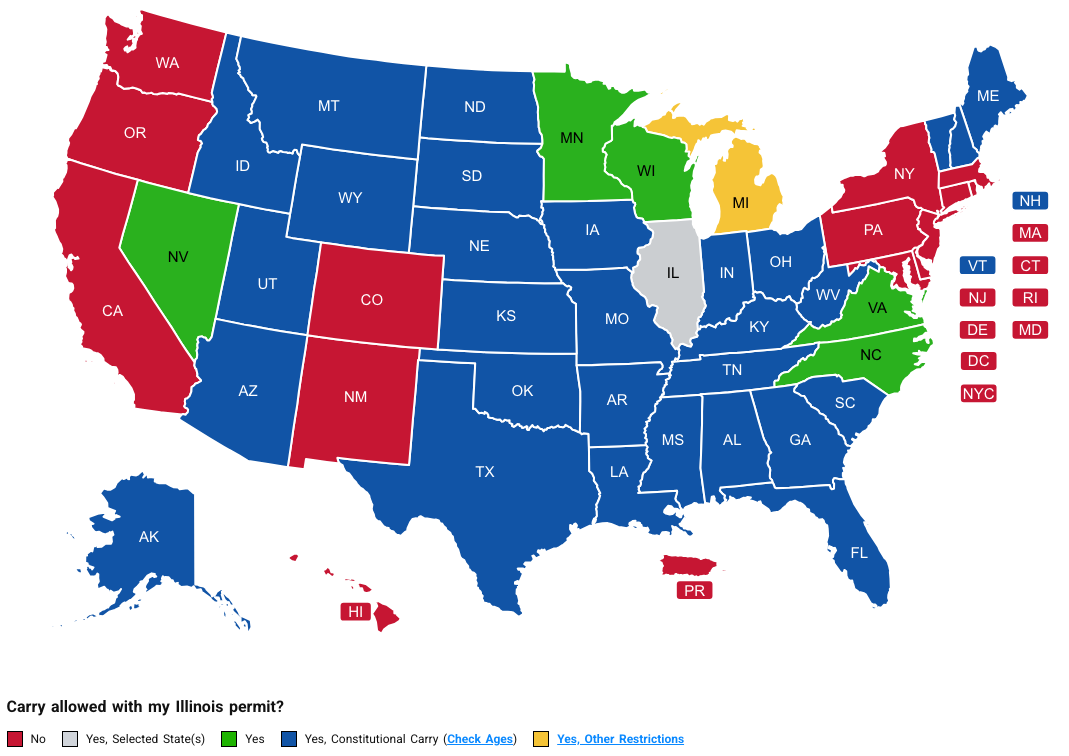
An Illinois CCL holder may carry concealed in:
- Alabama
- Alaska
- Arizona
- Arkansas
- Florida
- Georgia
- Idaho
- Iowa
- Indiana
- Kansas
- Kentucky
- Louisiana
- Maine
- Michigan*
- Minnesota
- Mississippi
- Missouri
- Montana
- Nebraska
- Nevada
- New Hampshire
- North Dakota
- North Carolina
- Ohio
- Oklahoma
- South Carolina
- South Dakota
- Tennessee
- Texas
- Utah
- Vermont
- Virginia
- West Virginia
- Wisconsin
- Wyoming
Note: You’ll want to take a look at our state gun law guides for whichever state you’re planning on visiting, just to familiarize yourself with the gun laws on carrying while out there, and be aware of the differences you might need to be careful of.
Also, while the majority of the states listed here have constitutional carry laws on the books, the age of eligibility varies by state, and the laws for permitless carry may differ from regular concealed carry laws, even within the same state.
Always check the law in the state you’re traveling to before you carry there.
Just Visiting
If you’re visiting Illinois and have a CCW permit from your home state, know that llinois does not recognize CCW permits from any other state.
Non-residents can apply for a non-resident Illinois CCL, but only states with concealed carry laws that are substantially similar to those of Illinois will be recognized. As it stands, only non-residents from Arkansas, Idaho, Mississippi, Nevada, Texas, and Virginia qualify for an Illinois non-resident CCL. Non-resident CCLs aren’t cheap, either, costing $300.
Prohibited Places
Even with your CCL, there are some places where concealed carry is still off-limits. You cannot carry a concealed handgun in:
- Schools (within 1,000 feet) and school-related transportation (such as busses);
- Childcare facilities (within 1,000 feet);
- Colleges and universities (within 1,000 feet);
- Public parks, playgrounds, and athletic facilities (except trails and bike paths);
- Roadside rest areas;
- Airports (both commercial and charter);
- Courthouses;
- Jails and prisons;
- Other government buildings (city hall buildings, state capital building, etc.);
- Hospitals, mental health facilities, and nursing homes;
- Public transportation and transportation facilities;
- Bars and any restaurant that gets more than half its profits from alcohol sales;
- Locations that hold a special liquor license or special use permit;
- Public gatherings that require a permit, such as festivals or parades;
- Gaming facilities;
- Public libraries;
- Amusement parks, museums, and zoos;
- Sports stadiums or arenas;
- Cook County Forest Preserve property;
- Sites under control of or use by the Nuclear Regulatory Commission; and
- Any private property where the owner puts up signs prohibiting firearms.
In these situations, your best bet is to leave your handgun in a locked container in your car, ideally out of sight, so no one will try to steal it while you are running your errands somewhere firearms are prohibited.
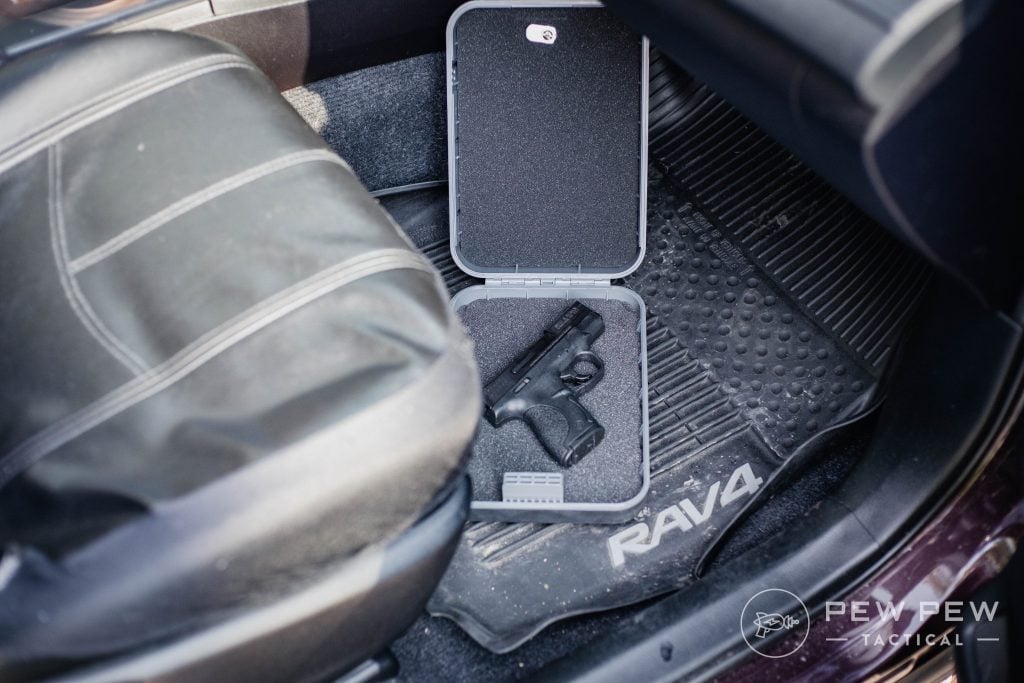
Carrying your gun in the parking lots at many of these locations is also illegal, but if you have to get out of the car to store your firearm, don’t worry. You can legally store or retrieve your firearm as long as you don’t leave the area immediately surrounding your vehicle.
That said, you’re less likely to have your gun stolen if you store it before exiting the car.
Transporting Guns
While Illinois’ FOID system can be a source of frustration, it does make transportation laws a little more straightforward.
If you possess a FOID card and have it on your person, you can legally transport your gun. If you don’t, then you can’t (even if a family member possesses a FOID card).
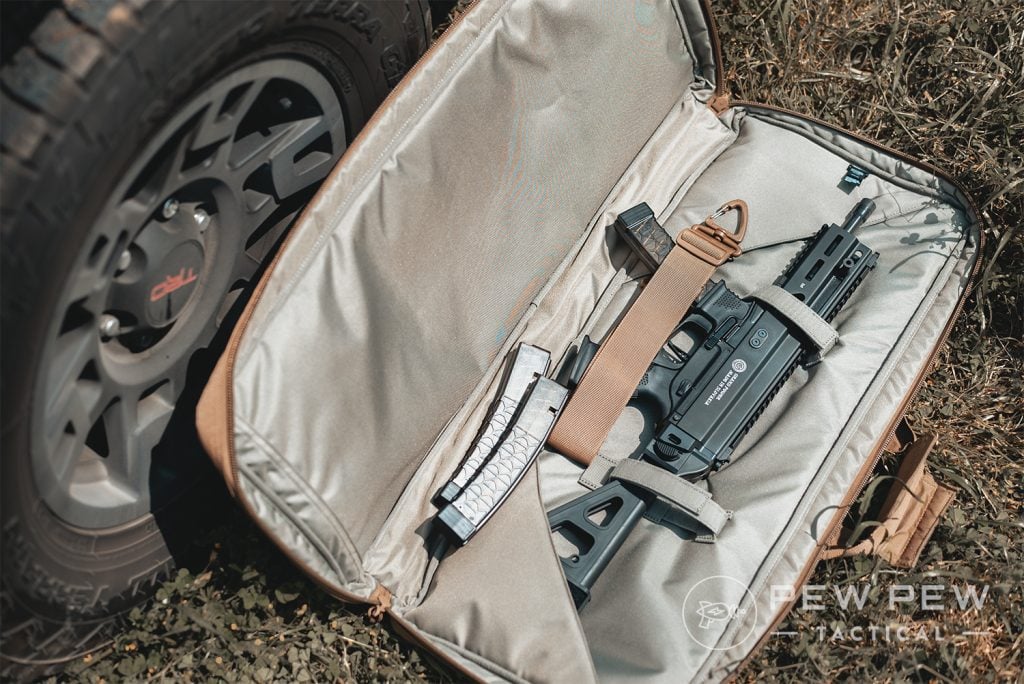
Non-Concealed Carry License (CCL) Holders
Non-licensed gun owners will need to ensure their guns are transported properly. As a general rule, out of sight and secure is the best way to transport guns in Illinois.
In addition to having your FOID card on hand when transporting your gun, you will need to make sure the gun itself is:
- Broken down in a non-functioning state (e.g., field stripped);
- Not immediately accessible (i.e., in the trunk of the car); or
- Unloaded and enclosed in a case, center console, glove box, carrying box, shipping box, or other container (must fully enclose the gun) when being transported by a FOID card holder.
The only exception to this law is when your gun is on your own private property/property under your direct control or property where you have the owner’s permission to transport and/or use your firearm.
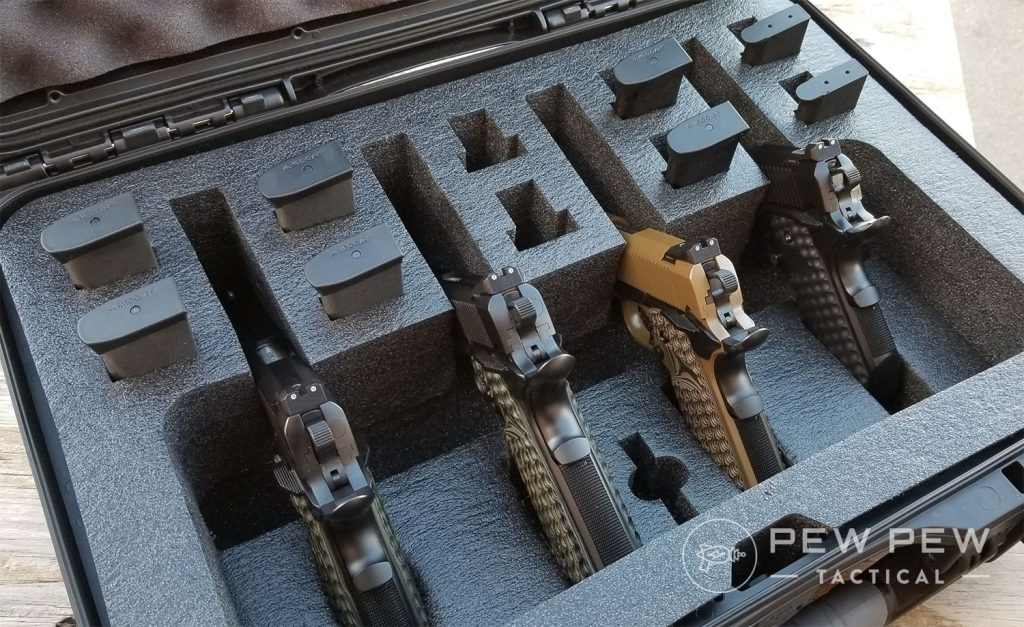
Concealed Carry License (CCL) Holders
With a valid permit, you can legally keep a concealed firearm either on your person or within reach whether or not the gun is loaded.
Just Passin’ Through
Federal law provides some legal protection for gun owners traveling through anti-gun states as long as they are in the process of “traveling.”

While the legal definition of “traveling” is a little hazy, it’s probably safe to say that stopping for gas or a potty break shouldn’t be an issue, a visit to a local attraction probably counts as a destination stop, in which case you’ll be subject to state and local gun laws.
Extended meals with friends or family probably aren’t covered either, so plan accordingly.
Traffic Stops
It doesn’t matter if you are an Illinois resident or non-resident. Every traffic stop will look the same (provided you do your part). If a law enforcement officer pulls you over and specifically asks if you are carrying concealed, you must either present your CCL or tell the officer whether or not you are armed.
You must tell the officer where your firearm is and allow him or her to secure your gun until the traffic stop is finished.
The same applies to all passengers in your vehicle.
Self-Defense/Use of Force
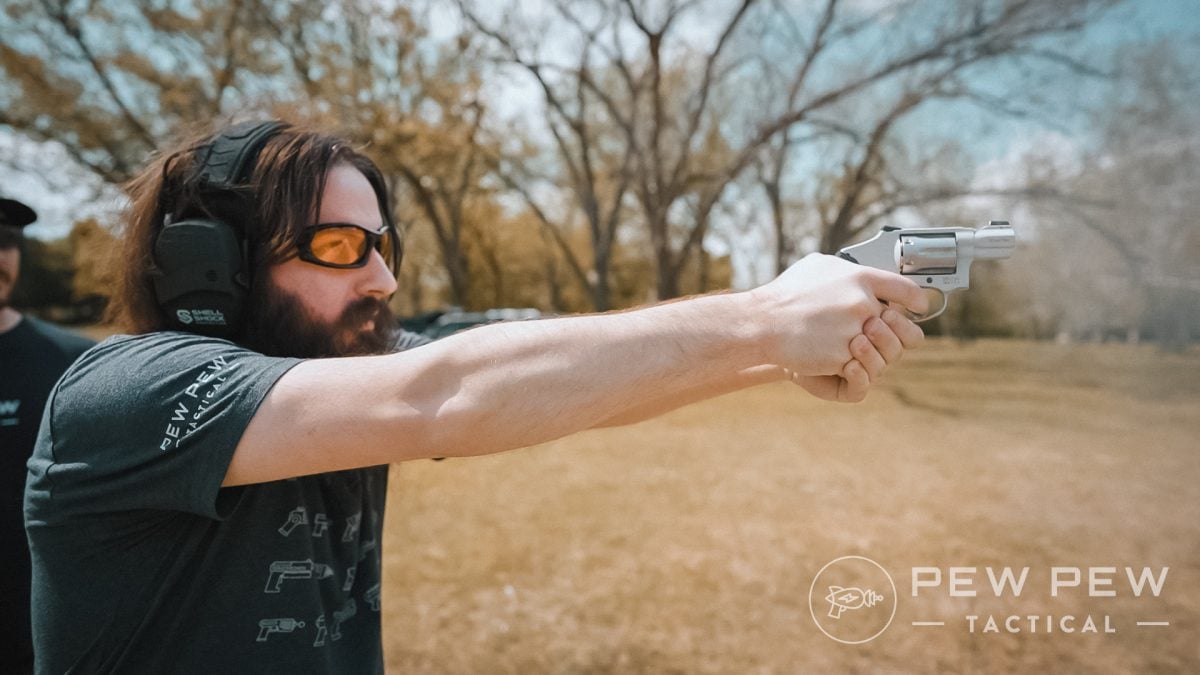
When is lethal force allowed?
Aside from practicing at the shooting range, you hopefully will never need to fire your guns. If you are ever faced with a deadly threat to yourself or others, however, Illinois does allow for the use of deadly force in self-defense.
Castle Doctrine
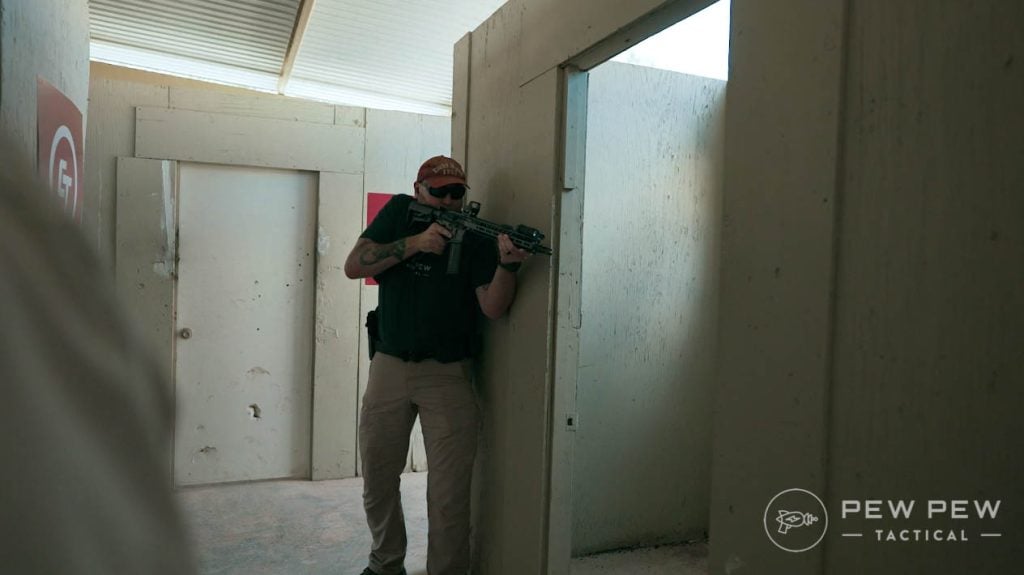
In Illinois, your home is your castle. Under what is commonly known as the “Castle Doctrine,” you can defend yourself with deadly force if you or a loved one is threatened while at home.
Specifically, you are justified in using deadly force, if you reasonably believe that deadly force is necessary to prevent someone from committing a felony in your house, or an assault or violent act against you or another person in your house.
Standing Your Ground/Duty to Retreat
Illinois does not have any laws on using deadly force to defend yourself while out and about. The law does, in general, say that you are justified in using deadly force to defend yourself if necessary.
It’ll be up to you to decide if it is better to use deadly force or to run away if you face a threat while outside of your home.

Of course, even with all these laws on self-defense, you should always use your best judgment to decide what type of force is appropriate. Just because you are allowed to use deadly force doesn’t mean you have to.
Taking any life is always a serious decision and may not always be necessary in order to end a threat to you and your loved ones.
Final Thoughts
And on that happy note, we’re done! You now know everything there is to know about gun laws in Illinois! Now, you can work on your gun collection! You might want a nice safe to keep all your new toys though.
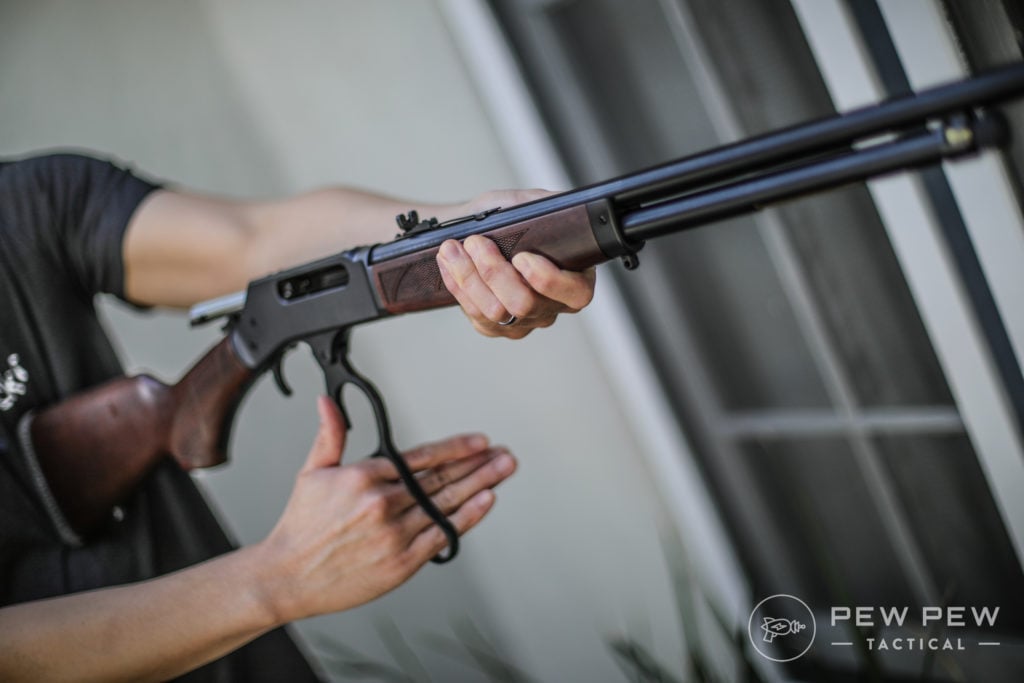
A sturdy safe can also keep your guns from prying eyes and curious kids. If you want to start smaller (for some reason), a gun cabinet, or even just a decent handgun safe may be a good investment.




